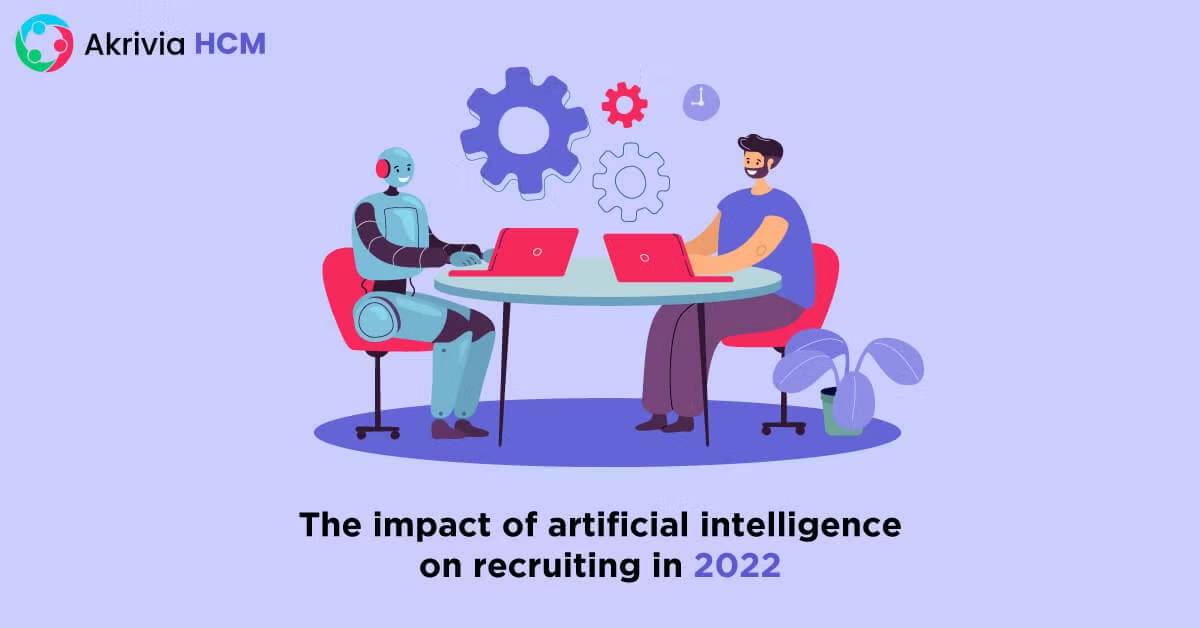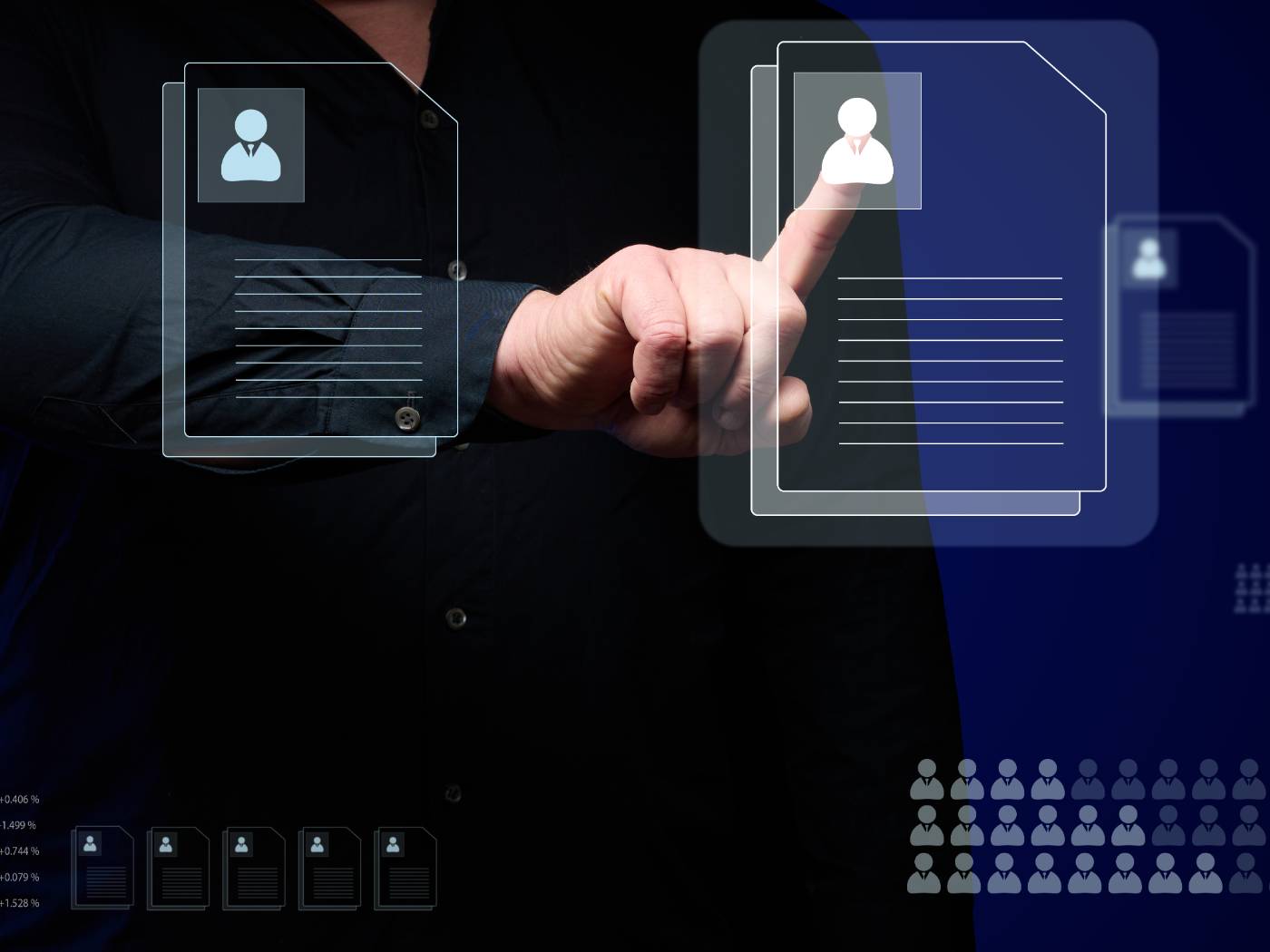Artificial Intelligence is one of the cutting-edge emerging technologies that attracted much attention and minds after the 4th industrial revolution. It has long been a myth for companies and businesses. Still, recent advancements in computing capacity and processing enormous amounts of data have made these ideas far-fetched. However, the infrastructure and need for AI expertise are daunting for most enterprises, giving rise to SaaS.
The evolving AI models like Google Assistant, SIRI, and Alexa have an eminent contribution to enterprise dependency. These models have popularised AI, and in some, it has already transformed the human style of living. It introduces a way to make people’s lives easier; that’s why companies are adapting and harnessing the power of Artificial Intelligence in every possible way.
Similarly, recruitment management software can also apply for mundane tasks, live screening, scheduling meetings, and more. Isn’t it ethical to call it a pillar of recruitment management software? AI integration with a recruiting software can impart predictive analytics to generate an improvised user experience and monitoring capacity for data drifts and aid in removing churn.
What is AI Recruiting Software?
AI is an algorithm for making systems and machines perform tasks and evolve based on data it takes in to inculcate human-like intelligence. A system in which artificial intelligence is applied to make it smarter while helping the recruiters automate different tedious tasks, get error-free insights, and offer personalization is known as AI recruiting software.
AI in recruiting software can help talent acquisition teams make better hiring decisions by discovering passive candidates, unlocking data-driven insights that guide decision-making, and achieving a higher hire quality.
How is AI Transforming the Recruitment Industry?
Hiring new employees is a time-consuming process involving many stages, like resume parsing, screening, candidate tracking, managing different outsources, and post-onboarding until the employees fit in. We all know that an AI-powered applicant tracking system can easily streamline recruiting process by automating every task and giving personalized access to the talent pool globally. Still, it can also improve the hiring quality and target the right fits.
It may not be able to enhance company culture directly. Still, it is strengthening existing work functions by automating tedious tasks and helping recruiters to perform their duties more effectively. Intelligent data can also be applied to remove applications that are not a good fit or that feel shoehorned into inappropriate positions. These algorithms are capable of learning and growing by using a steady stream of real-world data.
The Major Challenges of Applying AI in Recruitment

1. Aligning to the Hiring Requirement
Algorithmic candidate sourcing can be flawed. The critical challenge for hiring managers is to determine how machine learning can reduce bias within the hiring process and what kind of data sets are helpful for their systems to use in creating frameworks for matching talent.
2. Data Feeding
Data is key to creating an efficient AI-powered candidate experience platform. Selecting the right technology platform for an organization is crucial to the effectiveness of AI in recruiting. A good platform has a robust network of recruiters, candidates, and employees to provide high-quality data to an AI program. An AI platform that encourages user collaboration will provide users with a more valuable experience.
3. Manipulation During Candidate Screening
The technology scans a candidate’s resume for keywords to identify them as a suitable fit for a specific job. But it does not affect whether the candidate has changed jobs several times in one year or does not possess the personality traits needed for success in that position. In this case, every company needs recruiters.
4. Bias Control
Although bias control benefits artificial intelligence, it can also be a challenge. The biases of humans can be introduced into AI-powered systems by the training data used to create the models and the recruiting process itself. For example, a system might favour candidates from some particular academic institutions or those who live in certain regions.
Top organizations use comprehensive bias detection frameworks to ensure that hiring biases do not affect decision-making.
5. Data Security
Companies must be cautious when implementing new technologies. Even if a new technology is sure to make employees’ lives easier, it’s important to remember that people will continue to be a critical aspect of the workforce and that there will always be a need for decisions by humans.
As part of their preparation for change, employees should be given demos, live training, and opportunities for feedback prior to launch; change champions should be identified and trained on how to become change champions.
Advantages of Using AI While Recruiting
- Recruiters often have limited pools of prospects to choose from because job sites are unable to search candidate profiles broadly enough or access a range of sources to find new talent. AI tools can help overcome this problem by allowing recruiters to search for a larger pool of candidates from more sources.
- It adds value to small businesses while competing with giant organizations in the recruitment process. Artificial intelligence is used for resume scanning based on the relevant keywords to the role, and it brings transparent results to every candidate.
- AI recruiting software will enable businesses to leverage automation to streamline the time-consuming processes of recruiting, thereby allowing talent acquisition teams to spend more time matching applicants with open positions. As companies seek to expand, the speed with which they can find qualified employees will become increasingly important.
- Employers can have a better first impression on candidates by streamlining their hiring process and having recruiters who pay more attention to the people side of hiring are better able to help candidates get a better sense of an organization’s culture. Candidates gain vital insight into the organization and culture through every interaction with recruiters and hiring teams, whether in person or virtually.
- With AI, HRs can shift their spending time away from routine tasks toward higher-value and complex problem-solving. This can be achieved without reducing service levels for employees who raise frequent HR queries. Although deploying AI is a big investment it saves the money for companies by helping HRs streamline the recruitment process, increasing the ability to get the right talent, giving solutions for various challenges, and creating positive work experiences.
The Evolving Role of a Recruiter
After adopting AI in recruitment management, the role of HRs is changing rapidly. As a human-centred approach, artificial intelligence for recruiting strategy uses automation to enhance job performance. Artificial intelligence and automation provide useful assistance to recruiters who otherwise might be overwhelmed by the amount of information available to them.
3 Ways Recruiters Can Leverage AI:
Artificial intelligence can help recruiters sort through candidate data more effectively, freeing up time for more creative and engaging work. It will also allow recruiters to focus on more strategic decision-making and insights into the job market. They can leverage it for these roles:
- Instead of simply filling open positions, recruiters will use artificial intelligence to gather data and insights on applicants, allowing them to apply strategic hiring practices to their hiring decisions.
- When recruiters focus on fit, they can spend more time with the best candidates, going beyond resumes to determine whether a candidate’s cultural values align with the company’s and whether the candidate would be a good fit or provide a suitable candidate experience or not.
- Recruiters use visuals generated by algorithms to educate hiring managers on outcomes such as the quality of hire.
Conclusion
The shift of recruitment management toward AI has changed the ways HR professionals work, but if you examine the opportunities and challenges of implementing AI, it will be easier for you to understand the progression of AI technology in talent management software over the past few years. It also helps you in assessing contemporary challenges and avail imminent opportunities. Also, you get to identify key themes that reveal the role of artificial intelligence in recruiting and staffing by analyzing different positive and negative aspects of artificial intelligence. At the same time, you understand the usability and viability of using it in the recruitment process. Finally, as an HR professional, you reap the benefits of deploying an AI-powered recruitment management software as an enabler of the existing potential.




